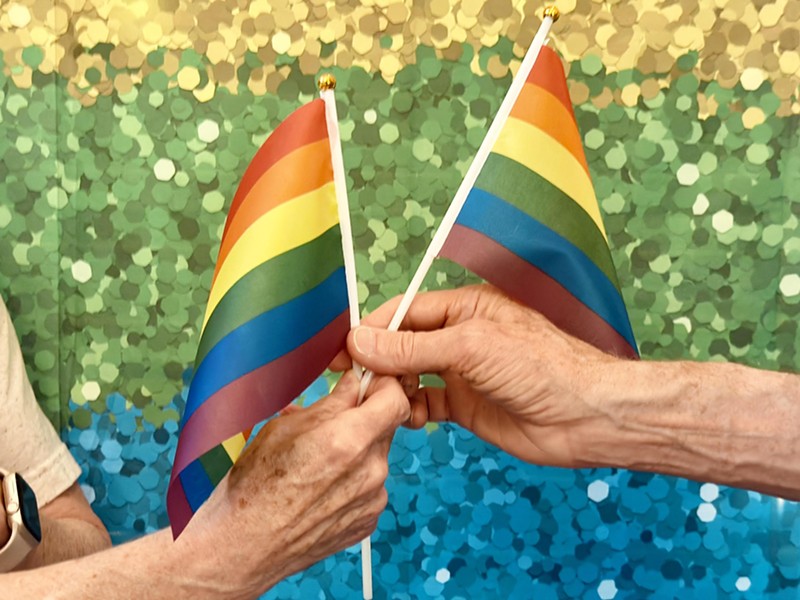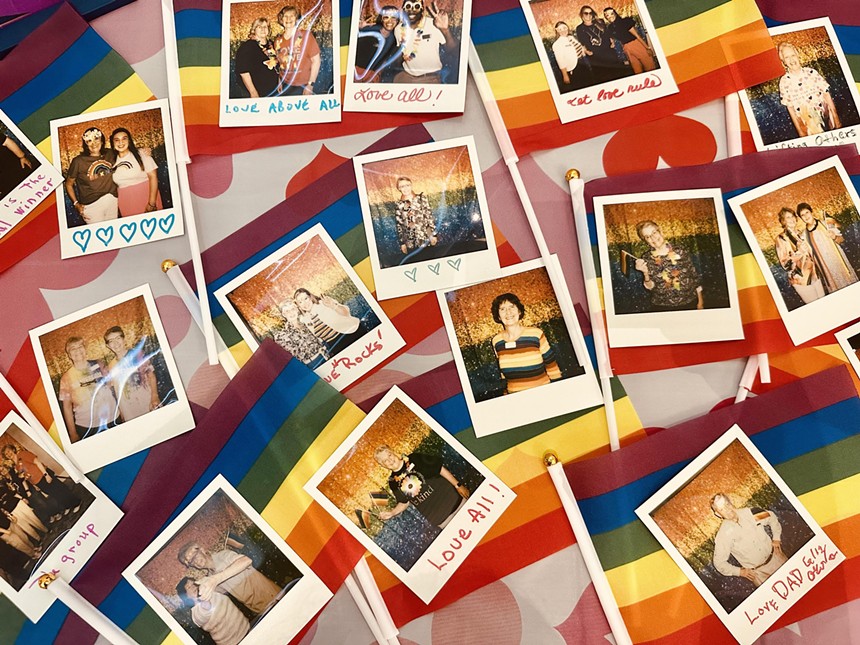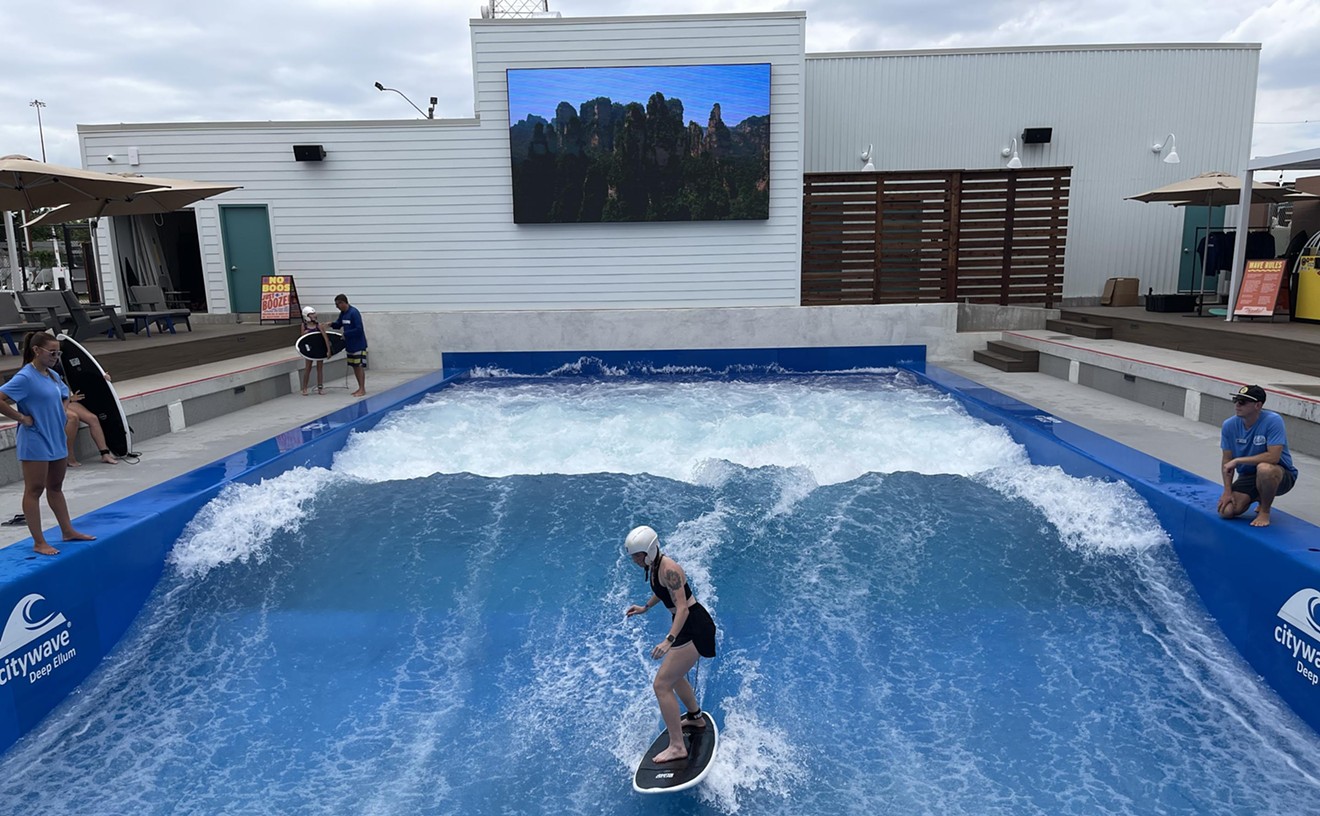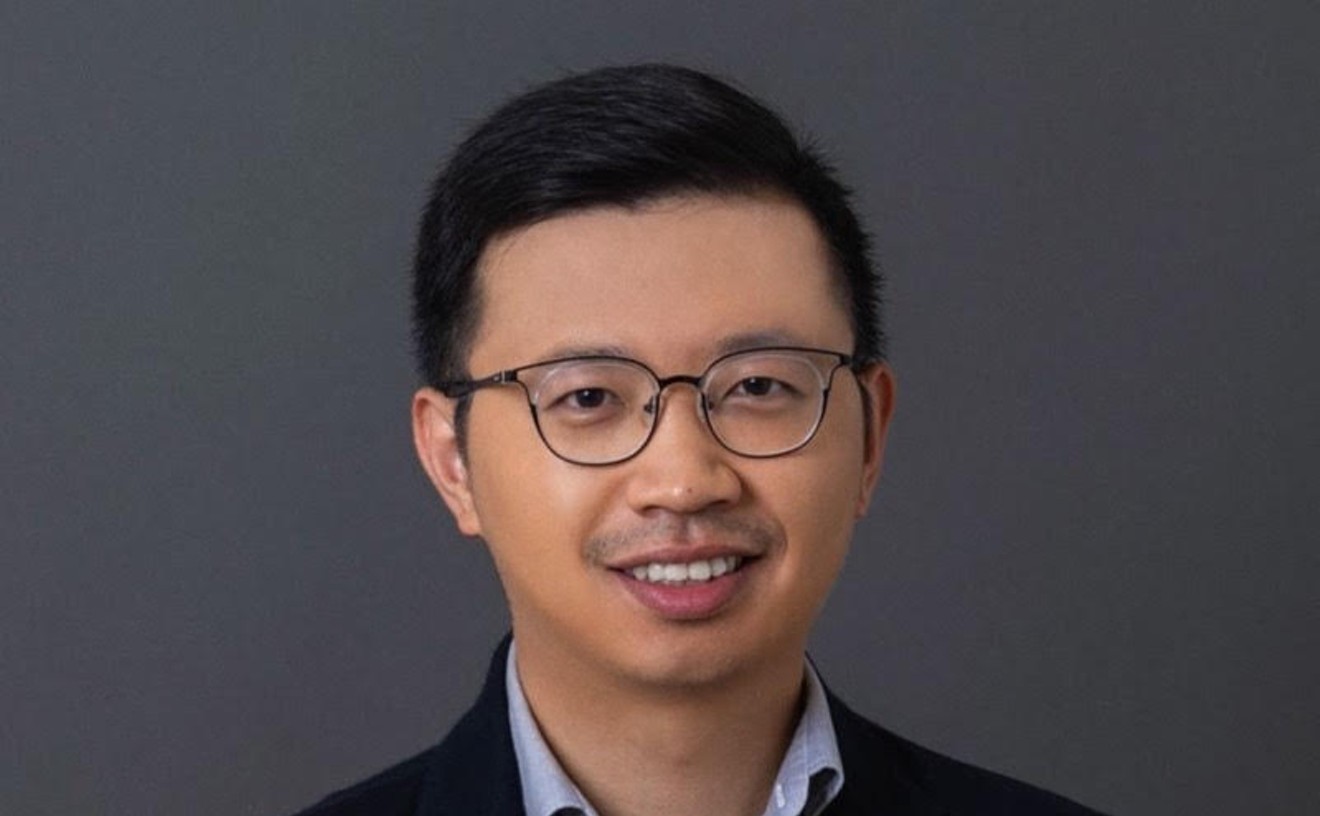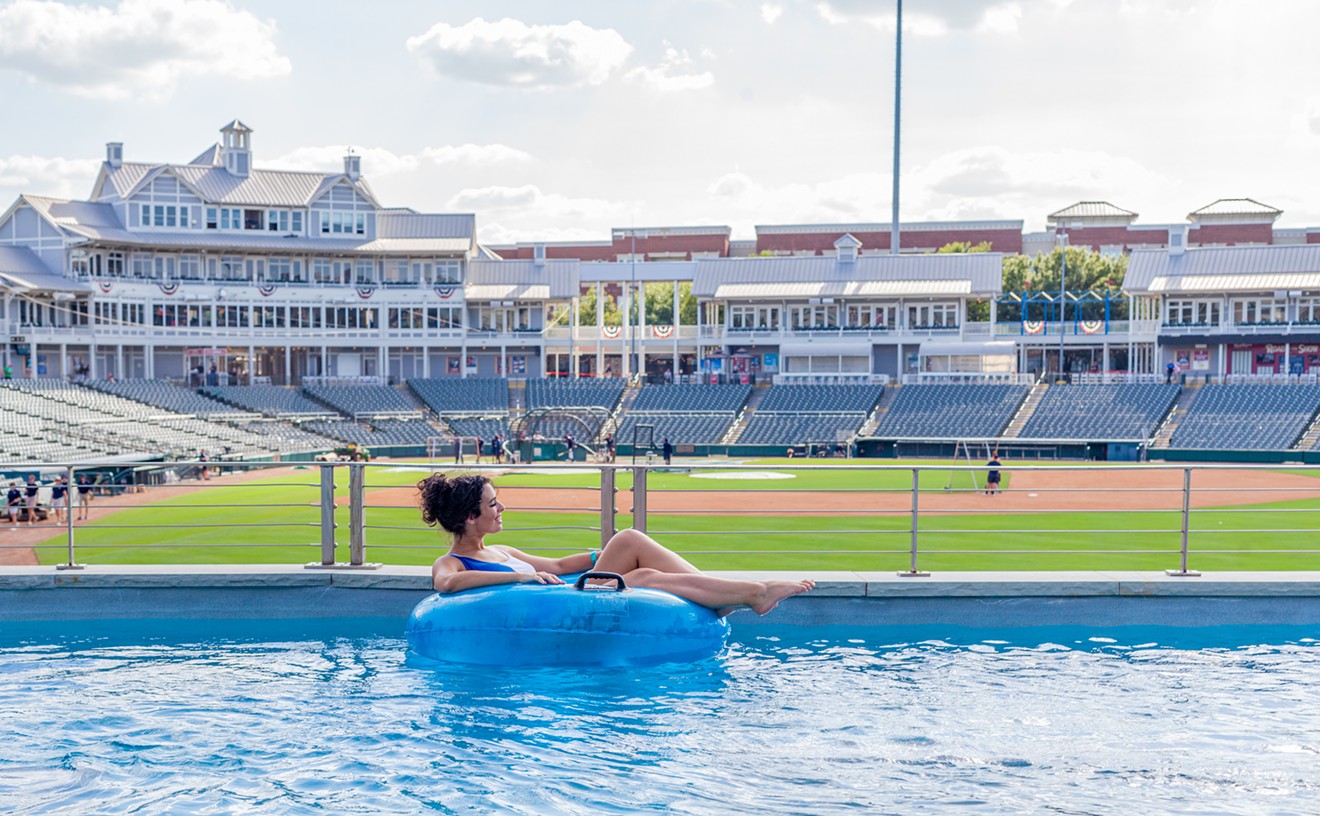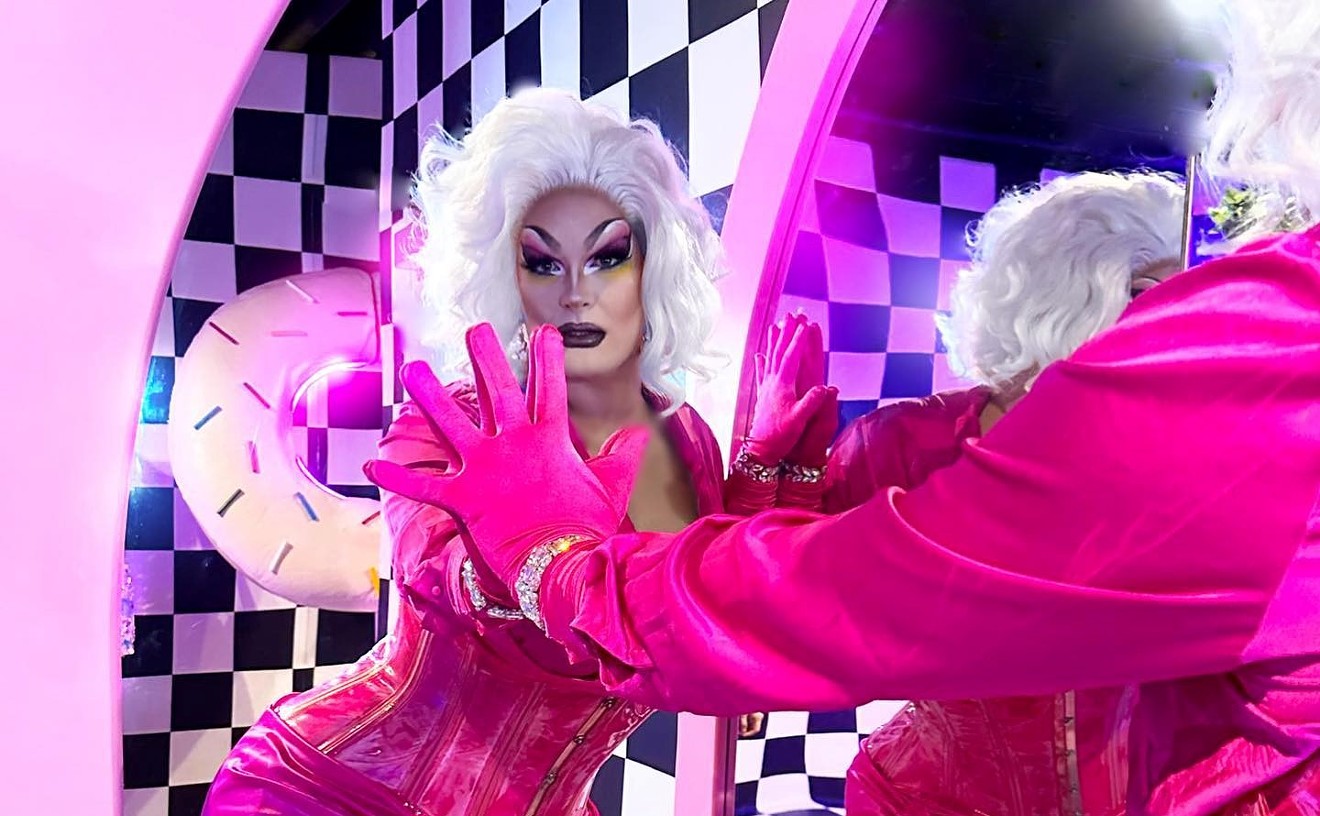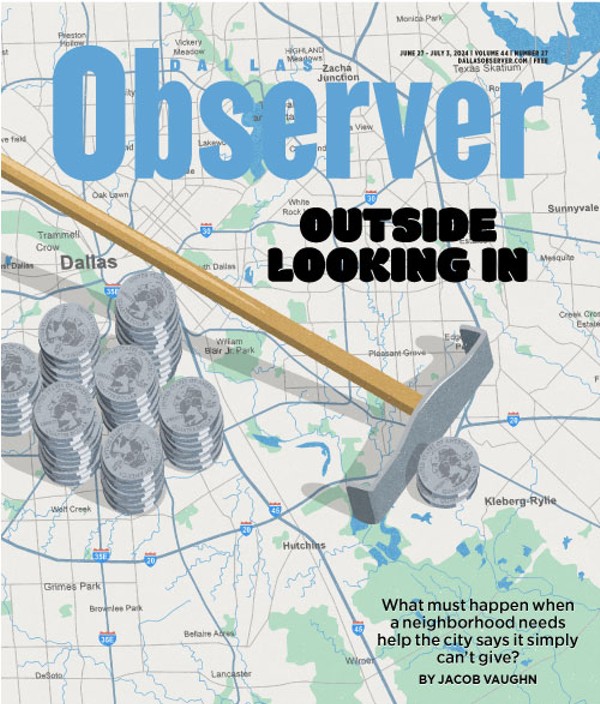“PVN has several LGBTQ+ residents who last year asked if the community would help them celebrate love and kindness with a Pride event,” a representative of the facility told us ahead of the event. “Those in attendance were young adults when Pride Month began after the Stonewall riots, a series of gay liberation protests in 1969, and are gathering for the second year to honor the movement for LGBTQ+ rights and to celebrate LGBTQ+ culture.”
The party took place in an apartment building atrium in the late afternoon. When we arrived more or less on time, there were already about 50 people in attendance. The senior residents and their visiting loved ones donned rainbow glasses and leis and posed for pictures in front of a glittery rainbow backdrop.
Many of the residents in attendance were straight allies. Our contact emphasized that one of the event’s goals is to challenge the notion that people over 65 are inherently bigoted and stressed that the Pride Month Happy Hour is already a popular tradition among its residents.
Another old cliché that’s still around these days is the tired “there weren’t this many gay people back in my day” idea, that being queer or trans is just a trend among younger generations brainwashed by the liberal media.
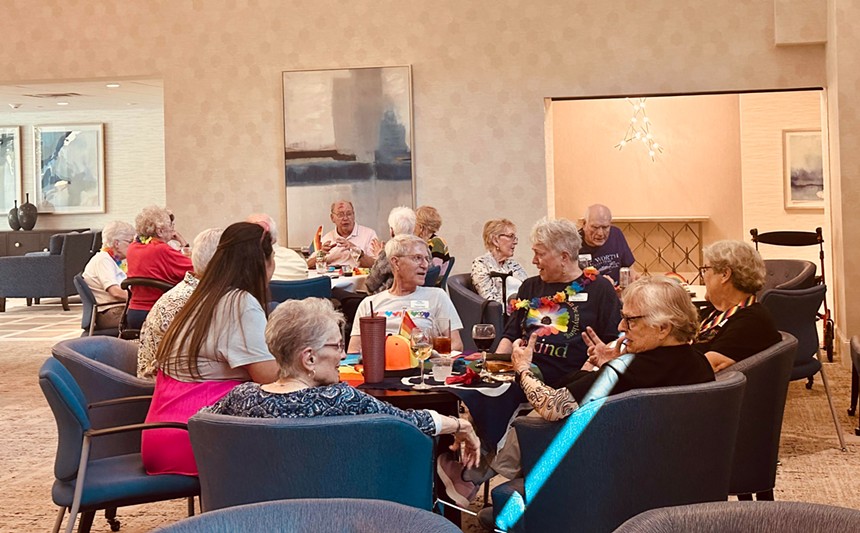
The residents of this senior community support their LGTBQ+ neighbors at a Pride happy hour.
Carly May Gravley
“There’s always somebody who thinks there’s this ‘gay agenda’ recruiting lots of people into gaydom,” says Sue Sherrod, who lives at Presbyterian Village with her wife, Jude Hammond. “That’s just crazy.”
Sherrod and Hammond have been legally married since 2015, when the Supreme Court ruled that same-sex couples have the right to marry. But they’ve been together since 1979.
“I knew that she wanted to attract me when she got the same kind of dog I had,” Sherrod says.
“That is not true,” says Hammond.
“It is true!” Sherrod insists. We’re clearly being let in on a decades-old inside joke.
In 2024, society has come a long way in terms of acceptance. It’s safer and more common to be an out gay person and therefore easier to meet other gay people. Dating in the '70s, however, was rarely as simple as getting matching dogs.
“We had to have gaydar,” says Sherrod. “And that doesn’t always work, and you have to deal with it.”
Hammond took Sherrod to her first lesbian bar for one of their first dates. Neither can recall the name of the bar, but they know it wasn’t Sue Ellen’s, the oldest lesbian bar in Texas and the only one left in Dallas.
“It was quite a shock to me because I had never been to one,” Sherrod says of her first visit. “It was very exciting. I couldn’t quit looking around at all the folks and what they had on and how they were dancing [...] Until you experience something like that, you don’t know there’s so darn many of you. There are so many gay people out there. It was eye-opening. Wonderful.”
Charles Foster and Bill Maina were another married couple we met at the Pride Month Happy Hour. Both were previously married and had been loose acquaintances for years. After their husbands died, Foster and Maina reconnected through their church and have been married since 2020.
Foster and Maina attend the Cathedral of Hope in Dallas, the largest predominantly LGBTQ+ church in the world. As Christians, they resent how less-inclusive churches drive away their gay members.
“They were constantly told, ‘You’re bad. You’re no good. You’ll go to hell,’” says Foster. “And when they find an affirming church that says, ‘God loves you the way you are,’ they can feel more comfortable there.”
This comfort was a long time coming for Foster, who spent much of his life fearing both social and legal ramifications for being gay in the '60s and '70s.
“I worked for the city of Dallas,” he says. “They had a morals clause so if they even suspected that you might be gay or associated with a gay, you might not be there the next morning.”
Foster saw several coworkers lose their jobs over these suspicions. To this day, he’s not certain if any of the terminated employees were actually gay.
“There’s one guy I worked with [...] and apparently he did some kind of violation or something that made them think he was gay, even though he had a wife and children," he says.
Foster does admit, however, that marrying a woman and having children wasn’t the most airtight defense.
“In order to fit in, in order to do business, in order to do anything, you needed a wife and preferably children,” he says. “It was a much different time.”
Maina, who worked in the more liberal academic sphere, says this was not his experience.
“There was never any people fired for their sexual orientation as far as I know,” he says. “And there were a number of gay people in the department where I worked.”
Today, LGBTQ+ seniors enjoy comfort and safety they weren’t afforded in their youth. Hammond, Sherrod, Foster and Maina all say that coming out later in life is increasingly common.
These are the experiences of just four people, and they’re hardly universal. But they might at least quash lingering doubts that LGBTQ+ people haven't been here this whole time. Yes, that includes your day.

